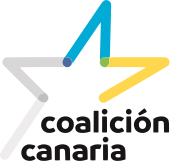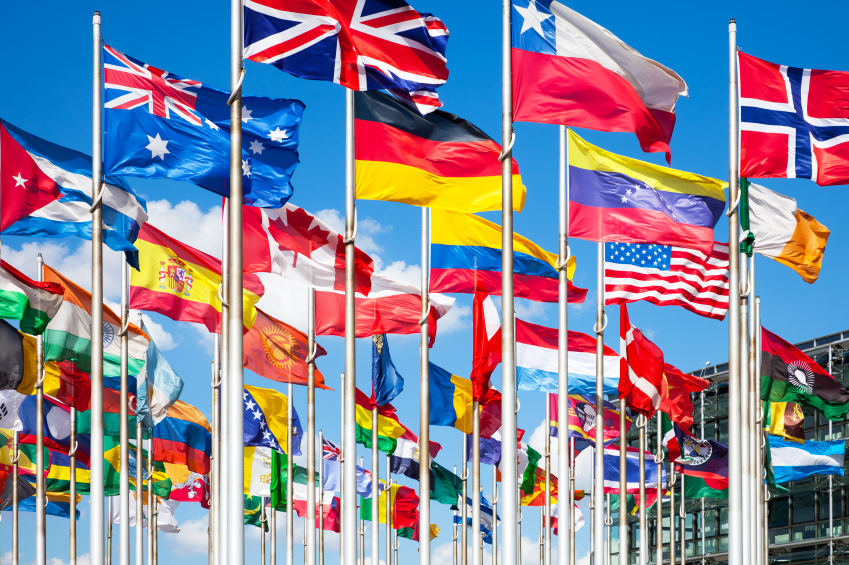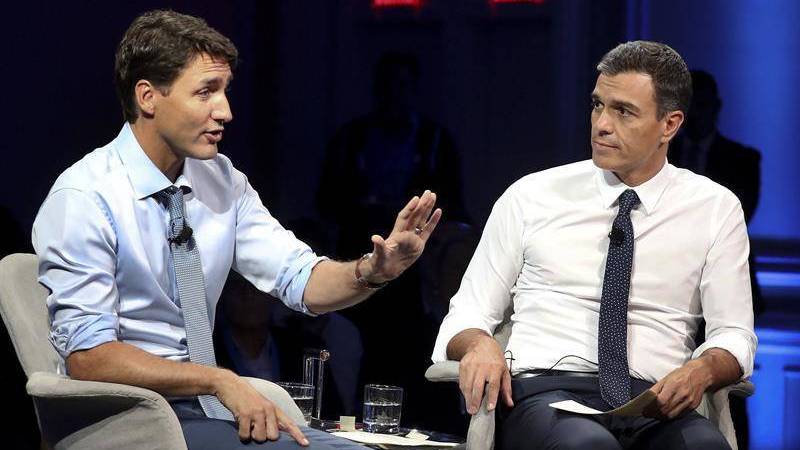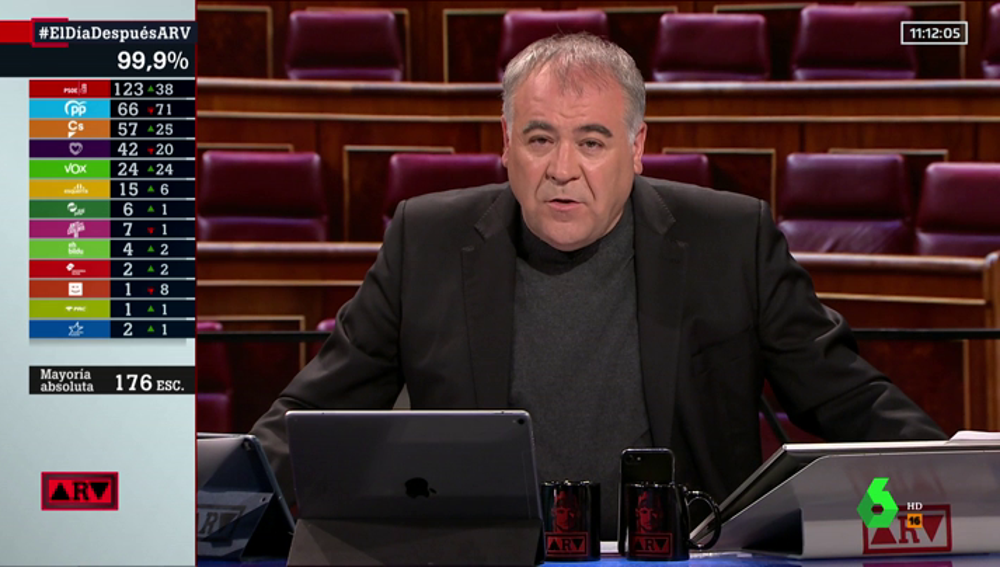Spanish Elections 2020
-
Parties Part 2 - Independentist Parties
- Junts
Junts is a Catalan political party established in July 2020 by former Catalan president Carles Puigdemont, announced on 2 July as a result of the foundering of negotiations with the Catalan European Democratic Party (PDeCAT) over the re-organization of the post-convergent political space under the "Together for Catalonia" umbrella. The party is to co-exist with the old Together for Catalonia alliance as a result of the Puigdemont–PDeCAT clash over the trademark's property rights, with those of the party having been taken over by the former but the latter still retaining the rights over the electoral coalition and the public funding.

- Esquerra Republicana de Catalunya
Esquerra Republicana is a pro-Catalan independence, social-democratic political party in the Spanish autonomous community of Catalonia. It is also the main sponsor of the independence movement from the neighbouring regions of Catalonia and Spain in the territories known as Catalan Countries. The Republican Left of Catalonia is the oldest political party in Catalan politics that has supported the idea of an independent Catalan nation for the entirety of its existence. From the inception of The Republican Left of Catalonia in 1931, they have always been in favor of a state independent from Spain.

- Partit Demòcrata Europeu Català
The Partit Demòcrata Europeu Català, initially branded as the Catalan Democratic Party, is a Catalan nationalist and liberal political party in Spain that supports Catalan independence. The party was founded in Barcelona on 10 July 2016, and is regarded as the successor party to Democratic Convergence of Catalonia (CDC). The party declared to have 14,000 members in the 2018–2019 period, but this number has recently been revised down to figures as low as 5,000 as a result of internal infighting over former Catalan president Carles Puigdemont's strategy and a number of party splits.

- Candidatura d'Unitat Popular (CUP)
The Candidatura d'Unitat Popular is a left-wing to far-left pro-Catalan independence[2] political party active primarily in Catalonia, where it has political representation, but also in other autonomous communities in Spain it considers to belong to the Catalan Countries. The CUP traditionally has focused on municipal politics, and is made up of a series of autonomous candidatures that run in local elections. Its presence is strongest in Catalonia proper.

- EH Bildu
Euskal Herria Bildu is a leftist, Basque nationalist, pro-independence political coalition active in the Spanish autonomous communities of País Vasco and Navarra. It was launched on 10 June 2012 in San Sebastián by five founding components: Eusko Alkartasuna, Aralar, Alternatiba, Sortu, and independents of the Abertzale left (groups and independent individuals from the Basque leftist-nationalist milieu, many of whom had been members of Batasuna), all of whom had been previously members of the Amaiur coalition.

- Bloque Nacionalista Galego
The Bloque Nacionalista Galego is a political alliance of left-wing Galician nationalist parties. It is self-defined as a "patriotic front". Formed in 1982, under the guidance of historical leader Xosé Manuel Beiras, the BNG calls for further devolution of powers to the Parliament of Galicia and the official and unambiguous recognition of Galicia as a nation. The BNG also promotes affirmative action for the Galician language. The current leader – president of the National Council and national spokesperson – is Ana Pontón, but their candidate is Néstor Rego.

- Rif's Future
Rif's Future is a pro-Rifinian independence party, led by Mohamad Elouali Akeik. Mohamad has also been the leader of many alliances and organizations which the objective of releasing El Rif from Spain and turn it into an independent territory. On the Rifinian Parliament, they have 2 seats and in the last autonomical election, 10.328 people voted for them. Now, they main goal is to get their voice into the Congress.

- Liberdade para Portugalia
Liberdade para Portugalia it's a centre-left, social-democratic and independentist party of the Autonomous Community of Portugalia. They occupy the Nationalist and pro-independence political space, with 2 major currents: The Unionists, which would like to stay in Spain but being like a state with nearly all functions a country has and the Bye Byes, whose leader is also the party leader, which wants independence as soon as possible. They are the 8th most voted party in Portugalia.

- Partido Grequiano
The Partido Grequiano is a political party from the Autonomous Community of Grequia, trying to reach the independence of the region by 2025. They are the only pro-independence party of the Autonomous Community and according to their webpage, they have no ideology but 'bringing freedom to their homeland.' They are believed to be related with far-right groups such as LEGA or New Dems, knows as really dangerous groups and believed to manage a drug business.

- Scottish National Party
The Scottish National Party is a Scottish nationalist, regionalist, and social-democratic political party in Scotland. The SNP supports and campaigns for Scottish independence within the European Union, with a platform based on civic nationalism. It is the largest political party in Scotland, where it has the most seats in the Scottish Parliament and it's leaded by the Scottish Prime Minister, Nicola Studgeon, despite she won't be running for the Congress.

- Horizont
Horizont is a populist and pro-independence party in Germanium. Leaded by Hermann Terscht, an old member of VOX political party, he intends to make a nation similar to how the region looked like in the 1930s, when it acted as a completely independent nation from the Second Spanish Republic.

- Independent Party of New York
The Independent Party of New York is not really a pro-independence movement, but they want to get their own army for the Autonomous Community in exchange of not asking for foreign embassies like the Catalonians did in the past.

- London Independence Party
The London Independence Party (LUP) it's a coalition of minor parties around the 4 Londres Autonomous Community region which fights for independence. Some people say it is related with a extremist group called "The Force of LWNI", which is an anarchist group that acts all around the Autonomous Community.

- Mouvement Démocrat
Le Mouvement Démocrat is a Île-de-France centrist and independentist party which has 2 goals: First of all, they want to be independent from Spain and then join the Kingdom of Gallorum. The Île-de-France region was formed after the French invasion of Spain in 1809, and was made for the richest Frenchs on the Empire. After the Spanish took their lands back, the region suffered many revolutions but resisted and lasted until today as a really populated and expensive place.

-
Part 3 - Regionalist Parties
- Movimento per le Autonomie Italiana
Il Movimiento per le Autonomie Italiana is a regionalist movement from the region of Grequia which is trying to divide the Autonomous Community in Italis and Groquas, the 2 historical regions that were established in the Franco's Disctatorship. When democracy arrived, the Ítalos and the Groquas were forced to join in a single autonomy to cut the really overweighted butget in 1978.

- Right to Change
Right to Change is a political association from the Londoner region of Ireland, which 'adopted' a regionalist attitude towards the union between the Region of Ireland and the Autonomous Community of Londres. They pretend to gain their own parliament and they will be coalited with Plais Cymru.

- Plaid Cymru
Plaid Cymru (Party of Wales) is a Welsh nationalist political party in Wales' region. Ideologically, Plaid is positioned on the centre-left to left-wing of the Londoner political spectrum, and for this general election, they are running along Right to Change. Both parties aren't very popular on their regions, but they'll try to be stronger by a regionalist and nationalist coalition.

- Foro Asturias
Foro Asturias is a regionalist political party in the Principality of Asturias.Asturias Forum was founded in January 2011 by former Deputy Prime Minister Francisco Álvarez Cascos, who left the People's Party (PP) after failing to be selected as the party's candidate for President of the Principality of Asturias in the 2011 election. In the Asturian election, Álvarez Cascos led the party under the name "Forum of Citizens" (Spanish: Foro de Ciudadanos). FAC won sixteen seats, making it the largest party on the General Council. Together with the PP, FAC's gains gave the centre-right a majority in Asturias for the first time.[6] The party has spoken to all three other parties to create a more consensual political climate.

- Partido Nacionalista Vasco
The Euzko Alderdi Jeltzalea-Partido Nacionalista Vasco, officially Basque National Party in English, is a Basque nationalist and regionalist political party. The party is Christian-democratic, with social-democratic and conservative-liberal factions. It operates in all the territories comprising the Basque Country: the Basque Autonomous Community and Navarre in Spain

- Coalición Canaria
Coalición Canaria is a regionalist, Canarian nationalist, conservative political party in Spain operating in the Canary Islands. The party aim is for greater autonomy for the islands but not independence. The party governed the Canary Islands from 1993 to 2019. It usually negotiates with the plurality party at the Cortes to form a majority in exchange for resources for the islands. It also governs the local administrations of Tenerife, La Palma, and Fuerteventura, as well as having majority control in some of the town councils on the Canary Islands.

- Partit Nacionalista de Catalunya
The Partit Nacionalista de Catalunya is a Catalan nationalist and liberal political party in Catalonia. The party was established on 12 May 2020 by former Catalan European Democratic Party (PDeCAT) coordinator-general Marta Pascal. They are the voice of those nationalists which want to stay in Spain under the new Estatuto de Autonomía, and they are expected to do well in Catalonia these elections.

- Compromis
Compromís s a Valencianist electoral coalition in the Valencian Community, Spain. The parties involved include the Valencian Nationalist Bloc, the left-wing Valencian People's Initiative, and a group of environmentalist (Greens Equo of the Valencian Country) and independent parties. Together they defend Valencianist, progressive and ecological politics. Compromís was founded in January 2010 to participate in the 2011 elections to the Valencian parliament, and the 2011 local elections.

- Chunta Aragonesista
The Chunta Aragonesista is a political party in Aragon (Spain), influenced by eco-socialism and pacifism. CHA defends a federal state, greater financial resources for Aragon, and the protection of the environment and hydrological resources of the Ebro Valley. It promotes the use of the Aragonese language.

- Partido Aragonés
The Partido Aragonés is a political party which advocates the interests of Aragon within Spain. The party was founded in 1978 under the name Aragonese Regionalist Party, but changed its name in 1990, keeping the initials PAR. The founders of PAR included Emilio Eiroa, who later served as the President of the Government of Aragon from 1991 to 1993.

- Unión del Pueblo Leonés
The Unión del Pueblo Leonés is a regional political party in Castilla y León, Spain. UPL strives to establish a separate autonomous community (Comunidad Autónoma de León or Autonomous Community of León) for the provinces of León, Zamora and Salamanca (parts of the old Kingdom of León), now in the Autonomous Community of Castilla y León.

- Nueva Canarias
Nueva Canarias is a centre-left Canarian nationalist political party representing the Canary Islands territory of Spain. It was coalited with the Partido Socialista Obrero Español until 2019, when they decided to run alone, achieving one seat in Congress.

- Teruel Existe
Teruel Existe is a Spanish political group based in the province of Teruel. It was founded in November 1999 as a citizen platform with the goal of demanding a fair and equal treatment for the province of Teruel. In 1999, Teruel still had no motorways, and on the only railway line (which was single-track without electrification) the train had derailed 8 times in a year. Encouraged by the success of the strike called for 4 October 2019 in twenty Spanish provinces, to protest the "forgetfulness" suffered by the so-called "empty Spain", the platform chose to establish itself as a grouping of electors to contest the upcoming general election in the province.

- Coalición por Melilla
Coalición por Melilla is a political party in the Spanish city of Melilla. The party was formed shortly before the 1995 municipal regional elections of Melilla, as a split from the Partido Socialista Obrero Español which had previously a strong electoral implantation among Muslim voters.

- Partido Regionalista de Cantabria
The Partido Regionalista de Cantabria is the second oldest political party in the Spanish Autonomous Community of Cantabria. The PRC originated in the Association in Defense of the Interests of Cantabria (ADIC), founded on 14 May 1976, with the objective of promoting Cantabrian autonomy.

-
Candidates Proposals
European Union and International Affairs

-
Jesús Aguilar (PP): Jesús Aguilar would like to keep on with the current attitude towards the European Union and establishing new relationships with other European countries. In the European Union ambit, he would like to see more Spanish relevance and intengration on the EU, as being part of the European Progressive Alliance. He is happy with Donald Tusk as Councillor and will not call for an election and he wants Jean-Claude Juncker to continue representing Spain in Commission when term limits and the EPA allows him to do so. Concerning the international relationships, Aguilar wishes to continue his "Integration and Co-Operation Plan", as keeping the army in Nofoaga or Inimicus and joining international treaties.
-
Pedro Sánchez (PSOE): Pedro Sánchez would like to do minor changes to the attitude towards the European Union by doing a new Councillor election, adding term limits to the Councillor with just 1 term and sending a non-affialiated candidate to Commission, making Spain representation neutral and not controlled by any other European countries. The PSOE is closer to the ELDR's view of Europe, so it's likely they would follow their policies. Concerning Nofoaga and Inimicus, Sánchez would cut the number of military personnel deployed on both nations and the number of Inimican soldiers in Spain. He would also change the international policies taken by Aguilar to Progressive and left-oriented policies instead, but they would not differ much.
-
Albert Rivera (C's): Albert Rivera wouldn't do major changes to the policies taken by the Government concerning both, the International ambit and the European Union. He thinks that Spain would need to integrate more in the European Union and being an important member on it. He doesn't care much about the Treaties and would likely not give any attention to the signed ones. He would keep Donald Tusk as Councillor, have term limits for Councillor elections and finally, continue with the EPA oriented policies and candidates for Commission.
-
Pablo Iglesias (UP) & Santiago Abascal (VOX): Pablo Iglesias and Santiago Abascal would do the same, but changing their ideology from far-right to far-left and viceversa. They would both call for an Spexit referendum, retire the European Councillor and ignoring the European Union on their policies. Unidas Podemos would join the Party of the European Left while VOX would join MEGA. On the International Ambit, they would both cancel the Madrid Pact, the Treaty of Telum and the agreement between Spain and Nofoaga to protect the island. Abascal would go an step further and cancel every existing Treaty and focus on reaching Treaties with Reitzmag, Angleter and other countries which they consider the "European Front of Resistance against the Imperialist EU".
-
Others (Más País, TúPatria y PACMA): These 3 candidates would do the same as the PSOE (Errejón and Duarte), while Carmen Gomis from TúPatria would mix both VOX and Partido Popular's proposals.
-
-

DEBATE: AGUILAR AND SÁNCHEZ, THE BEST - NOT MANY PROPOSALS, BUT LOTS OF ATTACKS AND INSULTS

Last night debate looked like a words fight between candidates instead than looking like a normal debate, and that is what the Spanish people think about it. With the campaign now over, and the last polls about the debate being published, it is time for us to analyze who won, who lost and who was the best on this low-level fight with no winner, but losers in the public opinion's view.
5 topics divided in 24 minutes each were proposed: Foreign Politics, Spanish Politics and Autonomies, Employment and Social Policies, Economics and Democratic Quality. On the first topic, Jesús Aguilar and Pedro Sánchez were the most 'intelligent', making proposals and critiquizing each other about what the other couldn't have done. VOX has gone full isolationist mode saying: "We must leave the European Union, we shall take the example of Angleter, we should close our borders and kick every non-Spanish citizen out of our country.", which has been refused by Pablo Iglesias, calling Abascal a fascist.
The 2nd Topic has been one of the most tense. Errejón has made the Partido Popular guilty of the pro-independence moves in Spain, along with VOX and Ciudadanos. Albert Rivera, in the other hand, has brought a stone to say "this is what the pro-independence with who Mr. Aguilar made an agreement threw at the Police back in 2019. What will the injured police officers say now Mr. President?" asked Rivera. VOX has said that tanks should be deployed on the streets when any pro-independence protest took place, with Iglesias calling Abascal a dictator this time. Carmen Gomis, who had been tweeting her answers via Twitter, has called Abascal a "crazy man" and proposed to apply Article 155 to any Autonomous Community with a pro-independence Government,
On Employment and Social Policies, again only Aguilar and Sánchez, joined by Pablo Iglesias, have made any useful proposal. The 6 candidates have fought one against each other going back to the Catalonia, tanks and other stuff affairs. Aguilar has proposed to raise the minimun wage once Spain gets the GDP at 2.5 trillion Euros, something which, according to him, is expected to hapen very soon. Sánchez proposed to create more social benefits for poor people and end with poverty for once at all with a huge agreement between every political party except VOX. Iglesias, which has adopted the same policies than Sánchez, has said "the government shall force people with 2 or more houses to rent them whatever if they want or not".
Finally on Economics and then, Democratic Quality, the candidates have taken the debate seriously but insults coming from Santiago Abascal and Pablo Iglesias haven't been missing. All of them made proposals concerning Economics, with Aguilar defending his Economical agenda. In Democratic Quality, Abascal said that his party needed guarantees that no countries like the UNSR might be interfering on the elections, which Errejón has described as "an idea only a lunatic like Mr. Abascal could have." At the end, candidates had one minute for a final statement, and then the 6 of them shook hands. The camapign is now over, and now, we head towards an election which we don't know what it will come up with.
-
-
-
-

The Election Analysis - With Antonio García Ferreras

A quarter to eleven in Spain, a quarter to ten in the Canary Islands. Good evening and welcome to Al Rojo Vivo - Especial Elecciones Generales. I'm Antonio García Ferreras and as always, I'll be with you, my fellow spectators, following the intense and interesting election night which could make Jesús Aguilar to lose majority. Right now, Andalucía, Escocia and Gibraltar have reported their results, and that is how the parliament looks like right now:

The Partido Popular has 25 seats, followed by the Partido Socialista with 24; the fight is close between Aguilar and Sánchez and every constituence will make a choice on who will be the next President. Ciudadanos and Podemos are also fighting one to each other, with 12 and 11 seats respectively. Finally, the SNP has 7 seats, VOX has 4, PACMA has 3, entering the Parliament for the first time, TÚpatria has 2 and finally, Más País has 1. We will continue broadcasting results during the night, but the most important question is... Who will win? If all goes as it's planned, we will find it soon...
-
-
-
-

The Election Analysis - With Antonio García Ferreras

It five past eleven, an hour less in the Canary Islands and we have got new results from Melilla, the Islas Baleares and Murcia, which have stretched out the distance between the Partido Popular and the Partido Socialista Obrero Español, and also between Podemos and Ciudadanos, awarding with one more seat to Más País. About the Senate, we are expecting to receive results after elections' results have come out. This is how the Congreso de los Diputados looks like right now:

Jesús Aguilar's Party has 32 seats, followed closely by Pedro Sánchez's party by 30 seats. Ciudadanos with 15 seats and Unidas Podemos with 13 seats are far away from the 2 major parties. The other parties keep the same number of seats except Más País, whoch have got one for the Islas Baleares, which means they are now at 2 seats. Stay tunes, more results coming soon!
-
-
-
-

The Election Analysis - With Antonio García Ferreras

After New York, Extremadura and Asturias reported their results, things are now less exciting. It's a quarter past eleven and at the moment, 167 seats have a name. The most surprising turnout has taken place in New York, where the Partido Socialista and the Great Old Party coalition were expected to win, but the Democrats and Partido Popular coalition, led by Minister Barack Obama has won New York with 20 seats, the double than the seats of the PSOE. This is how the Congress looks like:

57 seats for the Partido Popular, 48 seats for the Partido Socialista, 23 for Ciudadanos, 19 for Unidas Podemos and 2 seats for the Independent Party of New York, which are celebrating like if they had been awarded with the lottery. Stay tuned, more seats to go!
-
-
-
-

The Election Analysis - With Antonio García Ferreras

Time flies, and more results from 3 major autonomies like Portugalia and Germanium, along with El Rif, have revealed their results. On el Rif, extremist parties got 4 seats out of 4, meaning el Rif has entirely voted for extremist parties. In Portugalia, the Partido Socialista started to narrow the distance with the Partido Popular, but Germanium ruined once again the Socialists try. This is how Parliament looks like right now!

The Partido Popular has 99 seats while the Partido Socialista got 88. These parties are called to be the winner of this election and right now, in Germanium, we have seen how the Juncker Party, which is not related to the Internal Affairs Commissioner, but it's a group of fans that made this party, have gained 4 seats. It's incredible. Lots of seats to go, stay tuned!
 The Kingdom of Spain
The Kingdom of Spain










